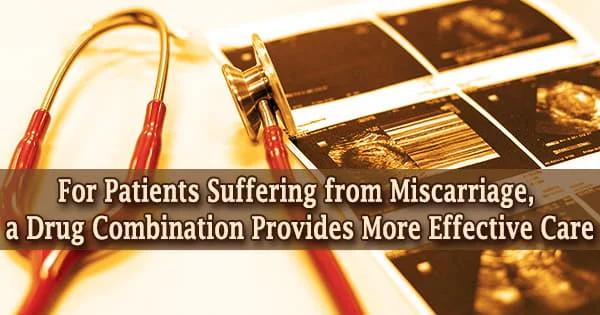Mifepristone and misoprostol, when taken together, can assist some women and their families find closure after a loss and can lessen the need for surgical intervention to finish the painful miscarriage process.
The findings of a recent clinical trial headed by experts at the University of Pennsylvania’s Perelman School of Medicine reveal that while misoprostol alone commonly fails to complete a miscarriage, a combination of misoprostol plus the medication mifepristone works substantially better. The findings were published in the New England Journal of Medicine today.
Every year, nearly 1 million women in the United States experience miscarriages. When the body does not remove the pregnancy tissue on its own, women must have surgical treatment or take the medicine misoprostol to complete the miscarriage.
There are likely a slew of reasons why a miscarriage occurs, yet the cause is rarely determined. The majority are unrelated to the mother’s actions. The majority of miscarriages are assumed to be caused by the baby’s defective chromosomes.
Though rarely discussed openly, miscarriage is the most common complication of pregnancy, and the public health burden is both physical and psychological. For too many women, misoprostol alone just leads to frustration. I have seen my patients suffer from the insult of the treatment failure added to the injury of the initial loss.
Courtney A. Schreiber
Misoprostol is often preferred for its convenience and privacy, as patients can take it in the privacy of their own homes. However, misoprostol does not always work, and many women who use it are still forced to undergo an invasive procedure they wished to avoid, prolonging an already physically and emotionally challenging situation.
“Though rarely discussed openly, miscarriage is the most common complication of pregnancy, and the public health burden is both physical and psychological. For too many women, misoprostol alone just leads to frustration. I have seen my patients suffer from the insult of the treatment failure added to the injury of the initial loss,” said study lead author Courtney A. Schreiber, MD, MPH, chief of the division of Family Planning and an associate professor of Obstetrics and Gynecology at the Perelman School of Medicine at the University of Pennsylvania. “As physicians, we have to do better for these patients, and our new study shows that by combining mifepristone with misoprostol, we can.”
Mifepristone and misoprostol are used to induce abortion in early pregnancy. However, the efficacy of mifepristone-misoprostol for miscarriage patients in contrast to misoprostol alone has remained unknown.
Most individuals are unaware that miscarriages are far more prevalent than they think. It’s expected that 1 in every 8 pregnancies among women who know they’re pregnant will terminate in miscarriage. Many more miscarriages occur before a woman even realizes she’s pregnant. Recurrent miscarriages (the loss of three or more pregnancies in a succession) is unusual, affecting around one in every 100 women.
In the current trial, 300 women were allocated to receive the customary 800 mcg of misoprostol administered vaginally after being diagnosed with early pregnancy loss classified as a miscarriage in the first trimester. Half of the women were also given a 200 mg mifepristone tablet as a pretreatment, which prepares the uterus to respond to misoprostol’s contraction-inducing impact.
Overall, 91.2 percent of women who had mifepristone pretreatment plus misoprostol suffered gestational sac evacuation, which is defined as a complete miscarriage 83.8 percent of the time by their first follow-up appointment, which happened on average two days following the therapy. Misoprostol was only successful 75.8% of the time, with just 67.1 percent finishing their treatment by their first follow-up appointment.
The researchers looked at a range of outcomes in the trial, and they found that the women who took mifepristone plus misoprostol had a better overall outcome. Patients in this group, for example, had a substantially reduced likelihood of having surgery by day 30, at just 8.8%, compared to 23.5 percent in the misoprostol-alone group.
In terms of pain, bleeding, or other adverse effects, there were no significant differences between the groups. Serious adverse effects were uncommon in both groups.
Mifepristone is a tightly controlled drug. The US Food and Medicine Administration now only allows the drug to be distributed in licensed hospitals, clinics, and doctor’s offices, not in retail pharmacies. Physicians in obstetrics, internal medicine, emergency medicine, and family medicine, according to Schreiber, should consider registering if they want to treat women who have miscarriages.
“High-quality care for women who suffer miscarriage not only improves physical outcomes but helps alleviate the psychosocial stress that can accompany the loss of a pregnancy,” she says. “Given the prevalence of miscarriage and the efficacy of the medication combination demonstrated in this new trial, every practitioner who treats pregnant women who may miscarry should be registered to prescribe and dispense mifepristone.”
















